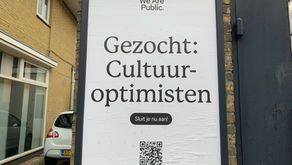Abbey Theatre, Dublin
- Judith Weir
- Apr 10, 2018
- 2 min read

I’ve been in Dublin, where my/Mozart’s opera Scipio’s Dream has had a short run on the Peacock stage of the fabled Abbey Theatre. Performers came from the Royal Irish Academy of Music, with a fantastic period band directed by David Adams.
Mozart, when he was 15, set to music Metastasio’s libretto about the Roman hero, Scipio. That would take about three-and-a-half hours, da capo arias and the like, to perform, very good obviously if you love opera seria. In 1990 (for an upcoming Mozart bicentenary) Channel 4’s Annette Morreau invited me to make a Mozart homage for a series called Not Mozart. With director Margaret Williams, we managed to squash this story into a busy half hour, writing a few new songs and storylines and relocating it to London’s Canary Wharf, then the ultimate in visual modernity.
I arrived in Dublin with no knowledge of the production but was delighted to discover that stage director Caitriona McLaughlin had adopted a Brexit concept. And little wonder that it popped into her mind, when this huge political event, imperfectly negotiated with the Irish Republic, is going to cause them even more trouble than it causes us. So, Scipio appeared onstage as the put-upon Irish PM Leo Varadkar, Constanza, the goddess of stability, was represented by Angela Merkel, and Fortuna, the crazed interplanetary woman became, you’re getting my drift, Theresa May. Rather charmingly, Scipio’s grandfather – representing tradition – came on as Irish revolutionary hero Michael Collins (I didn’t realise it was permissable to refer to him in a comic context.) In the opera’s climax, Constanza restores stability after Fortuna’s crazed schemes (including here, access to variously shaped vegetables and a return to the Irish Punt) are blown to bits. Would that life follows art more regularly.






